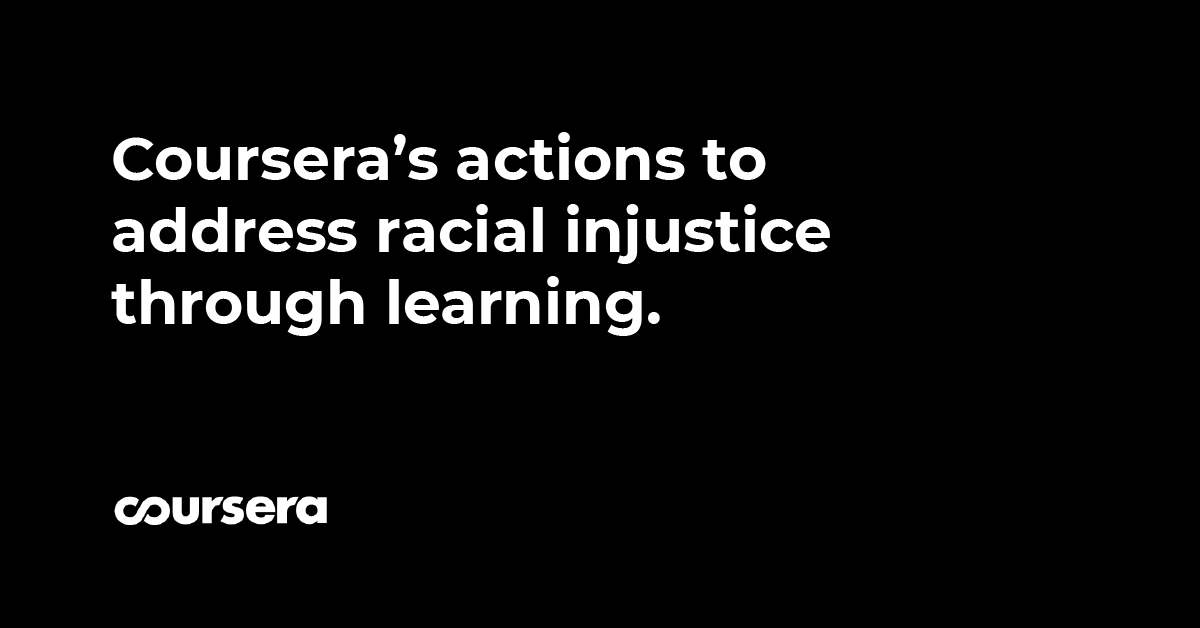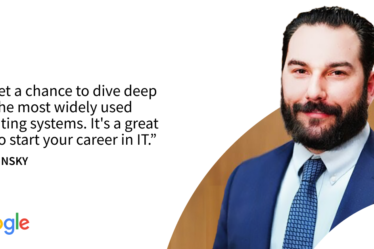
Team,
We are all hurt and outraged by the tragic deaths of Ahmaud Arbery, Breonna Taylor, and George Floyd, and by the bigotry that Christian Cooper experienced in New York City. These racist acts bring to the forefront the fears and injustices that Black Americans have faced every day for generations.
As I shared with everyone when we gathered last week, this is not the world I want to live in. That is why I am at Coursera, and I think that is a big reason why most of us are here as well. Learning is the source of human progress and a force to promote empathy and understanding. It is gratifying to see the quadrupling in daily enrollments over the last week in Professor Anderson’s course, Race and Cultural Diversity in American Life and History, offered by the University of Illinois. In these times of growing divisions, learning about our history and racial inequality is more important than ever.
It’s also important that we redouble our efforts with respect to social impact and diversity, inclusion, and belonging. We are grateful to April Soler, Matt Klein, and volunteers from all corners of the company who have created programs to serve refugees, underserved high schoolers, veterans, and formerly incarcerated people. We are well ahead of our 2020 company goal of providing learning to more than 20,000 learners through these social impact initiatives. Given the legacies of racism in the US, we know that many of these issues disproportionately impact people of color. Last year, we committed to grow the scope and resourcing of our social impact initiatives and are actively searching for a program manager to drive this work full time. And we continue to implement our Diversity, Inclusion, and Belonging strategy.
But there is always more we can do to address the underlying, systemic issues which give rise to social injustice. Some of the actions we are considering include:
- Creating a collection of courses already on Coursera that help broaden an understanding of racism, bias, and social justice.
- Pledging to provide financial support to our partners to create new courses that can amplify the voices of faculty who have researched racial discrimination and social justice for decades and who are recognized thought leaders. Hosting these courses on Coursera will allow millions of people to learn and be inspired to transform their communities.
- Sourcing and promoting content and credentials from authors from underrepresented groups.
- Sourcing and promoting content and credentials with the goal of better meeting the needs of Black learners and small business owners.
- Continuing to engage with and encourage HBCUs to become Coursera Partners.
We don’t presume to have all the answers, but we know that there is more that we can do — especially being Coursera — to address these issues. We want to include Courserians with a wide range of experiences and perspectives in our decision-making process to determine what will have the most impact and what additional contributions we can make to solving these issues. We plan to reflect actions in our Q3 OKRs.
We’re hosting an open forum for Courserians to connect on Thursday, June 4 at 2 pm PT. Details are on the company calendar. We are Coursera, and we are in a unique position to make a difference and transform the world through learning.
Thank you,
Jeff, Anne, Betty, Ken, Kim, Leah, Rich, Richard, Shravan, and Xueyan
6


